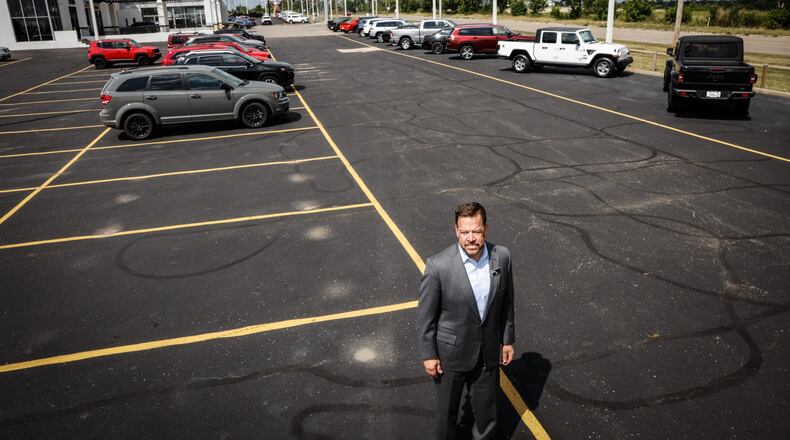Evans started August with 21 new Chryslers, he said Monday.
“It’s tough, because we’re coming out of a lockdown, COVID economy,” Evans said. “People want automobiles, so it is frustrating that we don’t have what they want.”
The situation is being felt globally. All modern devices, including automobiles, run on the tiny transistors. The fact that the pandemic is continuing doesn’t help either.
On Monday, Honda said “some of our North American operations will adjust production based on parts supply,” but the automaker did not disclose where or how.
“This is a fluid situation so we will not be providing plant or model specific information,” Honda said.
Beyond Honda: Volvo said Monday it will stop production at a Swedish plant next week due to the shortage of semiconductor chips.
Toyota said last week it was cutting global production by 40% through September. Production in North America is expected to be affected, but it was unclear where on Monday.
Michelle Krebs, an executive analyst with Cox Automotive, said globally, that means a loss of about 360,000 vehicles of production at 14 plants and 27 assembly lines, at least in Japan. Toyota’s volume models – RAV4, Corolla, Prius, Camry and Lexus RX - are affected, she said.
At Ford, a plant in Kansas City will be down for a week, as will a plant in Germany. That will impact production of the popular F-150 pickup truck.
Volkswagen is expected to restart a plant in Wolfsburg, Germany next week, but with only one shift.
“What we have seen in June, July and likely August, when the numbers come in next week, is that sales, which had been running really strong in the first half, have been hit by the inventory shortages,” Krebs told the Dayton Daily News. “Consumers seem to be giving up on shopping for vehicles, either because they can’t find the one they want or the prices are too high.”
Indeed, new vehicle prices keep rising, beating records, she added.
Evans is the owner of Evans Motorworks, Infiniti of Dayton and Arena Chrysler Dodge Jeep Ram. He also owns BMW of Dayton.
Many dealers are focusing on used vehicles, and the good news is, the rise in some of those prices has plateaued and even backed down a bit, he said.
The not-so-good news: It’s unclear when the situation will improve. One forecast from the owner of Chrysler, Stellantis, said the company does not expect relief until the end of the second quarter next year.
“It is dramatically affecting us, no doubt about it, across all of my brands,” Evans said. “There’s not anybody who’s immune to it at this point.”
Cox Automotive is part of Cox Enterprises, of which this newspaper is a part.
About the Author

